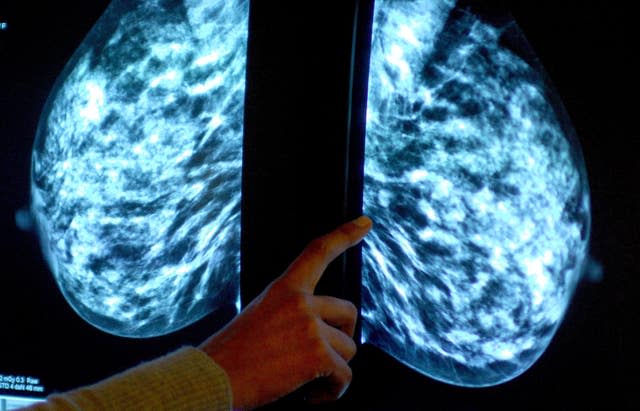Atkins quizzed over payout for women who missed out on scans despite cancer risk
Health Secretary Victoria Atkins would not confirm if compensation will be available for women who were not referred for annual MRI checks despite being at “very high risk of breast cancer”, if they are later diagnosed with the disease.
NHS England previously said there had been a “failure to refer” 1,487 women who received radiotherapy treatment above the waist to treat Hodgkin lymphoma between 1962 to 2003.
In a ministerial statement on March 5, health minister Andrew Stephenson said a number of women who were eligible for annual testing were not informed “due to variable referral processes”.
The women are to be offered scans within the next three months, Ms Atkins said at the time.

On Monday, speaking to the Health and Social Care Committee, Ms Atkins was asked by Rachael Maskell MP if a woman “has gone on to receive a diagnosis” whether she would be eligible for compensation.
Ms Atkins said: “I have to confess at the moment, our focus has been on trying to reach the women and to ensure that they’re given those scans as quickly as possible.
“As I say, that’s been our focus thus far.
“For me, I want to make sure that those 1,487 women have got the reassurances they need and then we can look to the consequences.”
Since the news, the NHS has written to another 110 women who received radiotherapy between 2003 and 2013 and “therefore need to be invited for an MRI scan”, Ms Atkins said.
She also told the committee that NHS England has been asked to carry out a national audit “to try to ensure that there are no other groups of people who may be similarly affected”.
Ms Atkins said the “vast majority” of women in this group will already have been receiving screening on a three-yearly basis, but annual screening is “in line with clinical guidance”.
NHS England previously said it is taking the issue “very seriously” and it will do “everything possible to ensure these women will be offered appropriate screening, at speed, in a compassionate and respectful way which is tailored to their clinical history”.
In 2000, research showed women who had received radiotherapy treatment to their chest for Hodgkin lymphoma were at higher risk of developing breast cancer and, in 2003, clinicians were asked to contact both previous and current patients to refer them for annual checks.
But it was not until September 2023 that details of a missed group were shared with NHS England and ministers were notified in February 2024.
A Breast Screening after Radiotherapy Dataset (Bard) was set up in 2021, which uses national datasets and undertakes checks with treating centres with the aim to ensure all women at increased risk of breast cancer following radiotherapy are referred to the NHS Breast Screening Programme in line with national guidelines.
Prior to 2021, NHS England said its screening services relied on referrals from individual genetic services, family history clinics and radiotherapy centres.
NHS England said the establishment of Bard and the Very High Risk pathway enabled them to identify the missed group of women.
The Department for Health and Social Care has been approached for comment.


